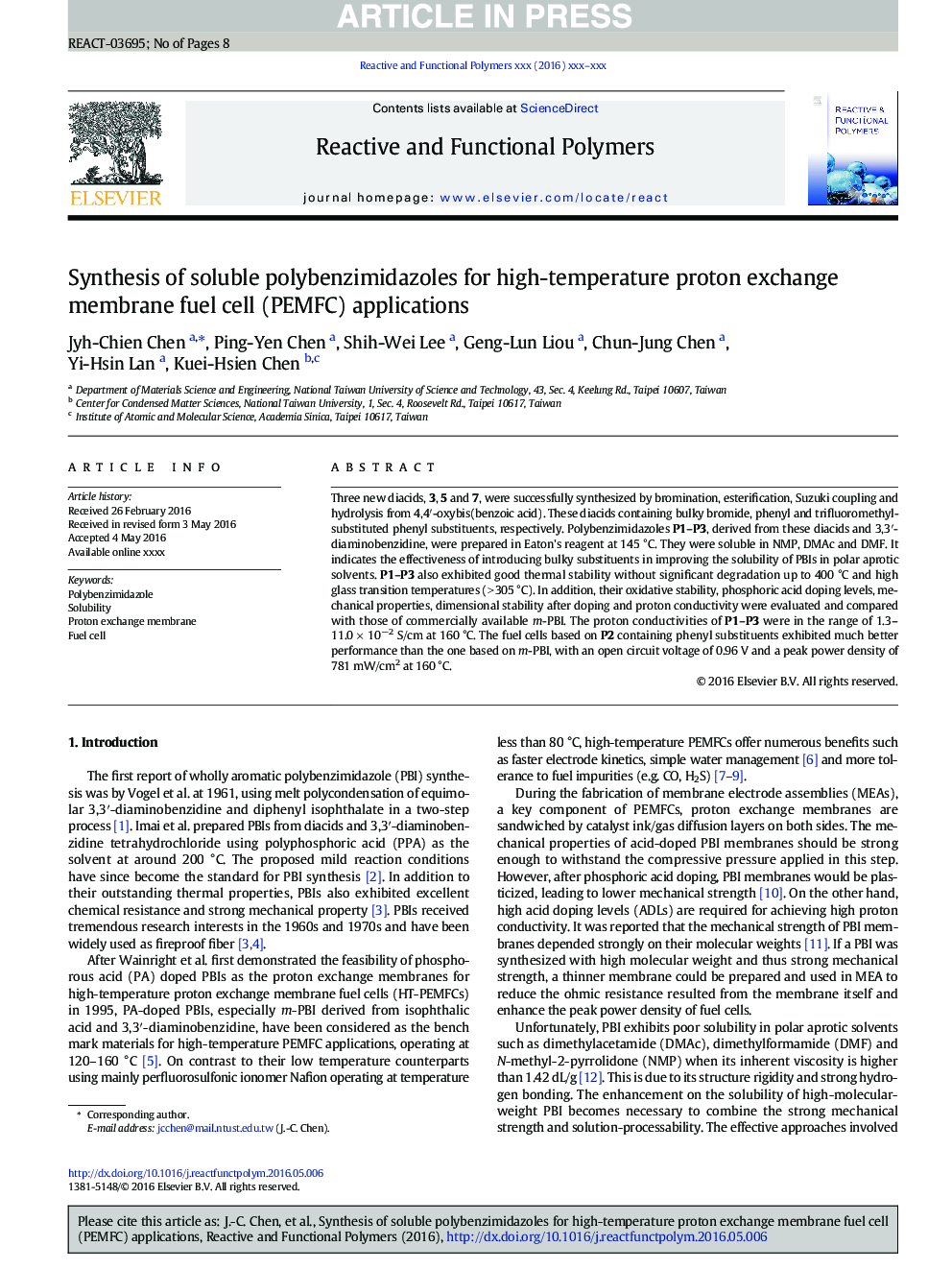| Article ID | Journal | Published Year | Pages | File Type |
|---|---|---|---|---|
| 5209491 | Reactive and Functional Polymers | 2016 | 8 Pages |
Abstract
Three new diacids, 3, 5 and 7, were successfully synthesized by bromination, esterification, Suzuki coupling and hydrolysis from 4,4â²-oxybis(benzoic acid). These diacids containing bulky bromide, phenyl and trifluoromethyl-substituted phenyl substituents, respectively. Polybenzimidazoles P1-P3, derived from these diacids and 3,3â²-diaminobenzidine, were prepared in Eaton's reagent at 145 °C. They were soluble in NMP, DMAc and DMF. It indicates the effectiveness of introducing bulky substituents in improving the solubility of PBIs in polar aprotic solvents. P1-P3 also exhibited good thermal stability without significant degradation up to 400 °C and high glass transition temperatures (> 305 °C). In addition, their oxidative stability, phosphoric acid doping levels, mechanical properties, dimensional stability after doping and proton conductivity were evaluated and compared with those of commercially available m-PBI. The proton conductivities of P1-P3 were in the range of 1.3-11.0 Ã 10â2 S/cm at 160 °C. The fuel cells based on P2 containing phenyl substituents exhibited much better performance than the one based on m-PBI, with an open circuit voltage of 0.96 V and a peak power density of 781 mW/cm2 at 160 °C.
Related Topics
Physical Sciences and Engineering
Chemistry
Organic Chemistry
Authors
Jyh-Chien Chen, Ping-Yen Chen, Shih-Wei Lee, Geng-Lun Liou, Chun-Jung Chen, Yi-Hsin Lan, Kuei-Hsien Chen,
